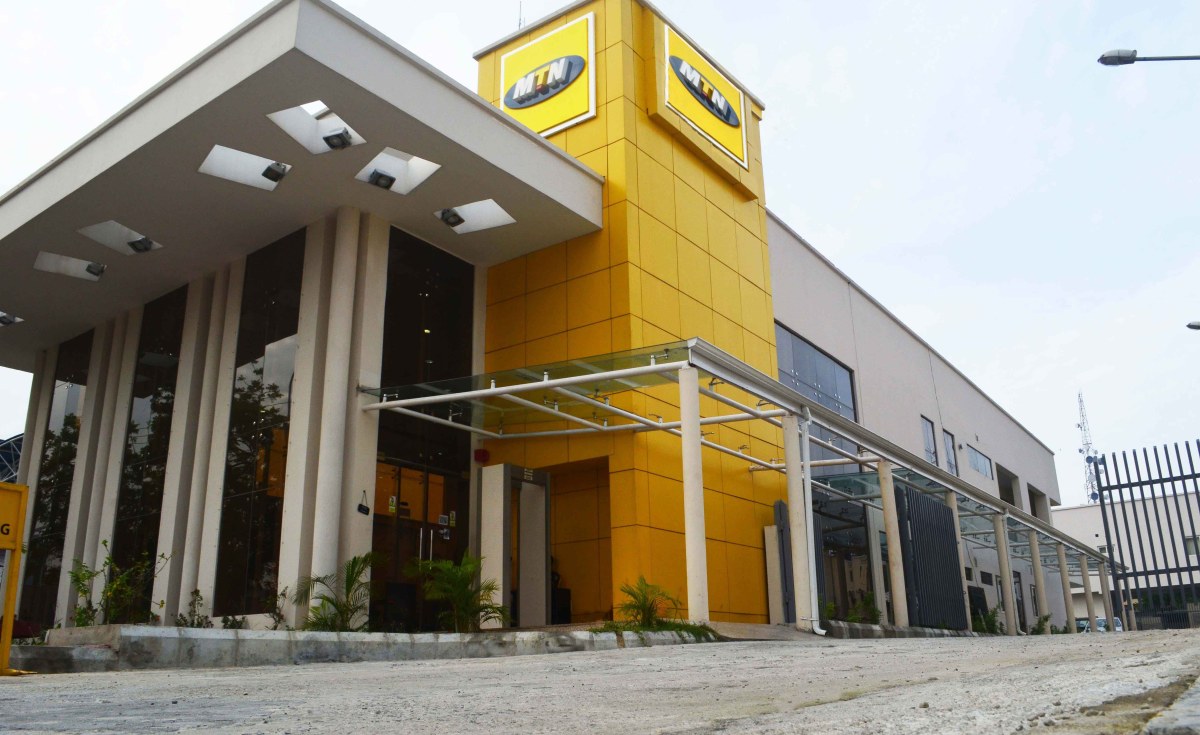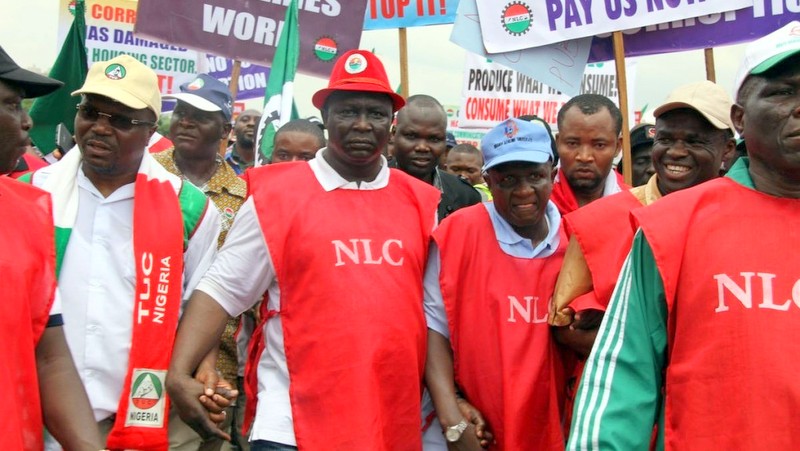There is a greater need for the Nigerian Communications Commission (NCC) to tread with caution in order to avoid monopoly with the Visafone spectrum transfer to MTN Nigeria.
Given that the current MTN/Visafone spectrum transfer has raised issues among telcos operators in Nigeria, it becomes imperative that the NCC reached an informed decision to avoid monopolizing the Nigerian Telecommunications Industry.
TheNewsGuru recalls the regulatory commission held a public enquiry in this regards on the 25th of June 2018; however, it is more imperative to properly cross the Is and dot the Ts if the NCC must reach an informed decision to avoiding monopoly.
It is commendable that overtime the NCC has put in place certain guidelines to regulate telecommunication operations in the country.
The June public enquiry was necessitated by the question of whether NCC should or should not transfer Visafone’s license and spectrum to MTN Nigeria Communications Limited.
At a public hearing in Abuja recently, 9mobile and Airtel argued that transferring Visafone’s 800 Megahertz spectrum would concentrate 38 per cent spectrum available in the country on MTN and thereby give the company undue advantage to further dominate the Nigerian telecommunications market.
TheNewsGuru also recalls that on the 7th of December 2015, the NCC granted MTN Nigeria final approval for the acquisition of 100% equity in Visafone. In 2016, Visafone sought NCC’s approval to transfer its operating and spectrum licenses to MTN to ensure the optimal use of its spectrum holdings.
Although the NCC had approved the acquisition deal, it has yet to approve the transfer of the frequency and license to MTN, even as 9mobile had gone to court to challenge the transfer of the frequency to MTN.
According to the Nigerian National Broadband Plan and the Nigerian Communications Act 2003, NCC can issue spectrum licenses, and has such powers to reallocate or reissue. It also has powers to recall an unused spectrum license which has remained unused for 2 years, and reallocate to another client.
As at May 2018, MTN has over 50% revenue market share and 66.4mn subscribers representing 41% subscriber market share in the Nigerian Telecommunications Industry. It also has robust Earnings Before Interest, Tax, Depreciation and Amortization (EBITDA) margin of ~50% which underscores its capacity to undertake massive network investment compared to other telcos with less than 30% EBITDA Margin.
Furthermore, the NCC in its study on the level of competition in selected communications market in 2013 declared MTN a Dominant Operator in Mobile Voice Market and Joint Dominant Operator alongside Glo in the Wholesale Leased Lines and Transmission Capacity sub-segment. This is also in addition to its interest in IHS, Colocation and Infrastructure Sharing Licensee with the highest number of towers in the Nigerian Telecommunications Industry.
Stakeholders concerns in this matter, considering MTN’s size, resources under its control, even without the 800MHz band, and its dominance status in both voice mobile and wholesale leased lines and transmission capacity segments of the industry, the proposed transfer of license and resources including the 800MHz spectrum from Visafone would not only increase MTN’s market power but will substantially lessen competition in the Mobile Voice Market and Mobile Data Market segments of the industry, which could lead to MTN becoming a monopoly.
This is because, other telcos, including the top 3 operators, will not be able to compete, as the proposed transfer will enable MTN to grow from dominance into a monopoly, thereby distorting the competitive landscape in the Nigerian Telecommunications Industry.
MTN through the proposed transfer of license and resources including the 800MHz spectrum from Visafone to MTN is intended to unnecessarily amass and reserve spectrum bandwidth capacity at the detriment of other players in the industry.
It is pertinent to state that the 800MHz spectrum band has been identified as the most ideal and suitable for the deployment of mobile broadband due to its characteristics to traverse farther distance and support mobile broadband rollout at optimal cost (~25% CAPEX) compared to 2.6GHz spectrum band.
It is critical to mention that the proposed transfer of the aforementioned resources from Visafone to MTN will enable MTN to be the only operator among the top 4 pan-Nigeria operators holding this prime spectrum band.
The National Broadband Plan (2013-2018) had intended that the digital dividend band will be relinquished by the National Broadcasting Commission (NBC) and transferred to the NCC for mobile broadband services. MTN had, however, earlier engaged and acquired 10MHz bandwidth capacity on the 700MHz spectrum band from the NBC. The transaction was conducted in a closed and non-transparent manner which is disadvantageous to other interested operators.
MTN had earlier opposed similar acquisition in South Africa. It is, therefore, sane to query the justification of its bid to replicate what it rejected in South Africa. If that acquisition is not good for South Africa, why is it good for Nigeria?
Spectrum is the same all over the world, and in the UK, the regulator places a cap on the amount of spectrum an operator can buy. Also in India, there is a cap on the volume of spectrum that can be acquired and held by a particular operator. This needs to be introduced to the Nigerian Telecommunications Industry to avoid spectrum hoarding at the detriment of other stakeholders in the industry.
There is need to ensure balanced investment and control of prime resources in order to build other strong players apart from MTN in the Nigerian Telecommunications Industry.
In line with international best practice for Mergers and Acquisition, NCC should consider conducting an assessment of the impact of the transfer of the License and other resources including the 800MHz spectrum from Visafone to MTN taking into consideration inputs from other industry players likely to be affected by the transaction.
Example of such is the EU Merger Regulation 2004 and the United Kingdom Enterprise and Regulatory Act 2013 which provides detailed steps on the test to be conducted by a Regulator with regards to this kind of transaction.
NCC recently published Spectrum Trading Guidelines intended to ensure optimal utilization of this finite resource and create a secondary market for spectrum transfer, spectrum leasing and spectrum sharing. The Guidelines further specify conditions to be met by both the Buyer and Seller in order to enter into Spectrum Trading arrangement.
In line with general principles of law, the guideline cannot be applied retrospectively towards the regularization a pre-existing transaction, which in this instance is between Visafone and MTN.
The same guideline stated that if in the considered opinion of the Commission, a transaction will negatively impact on competition and other regulatory considerations, the Commission may at its discretion conduct a Public or Private Inquiry in respect of an application for Spectrum Trading.
NCC at this junction should consider all other stakeholders’ concerns to review their stand to see that monopoly should not be allowed.
If MTN is given the access to the 800 MHz spectrum band which will enable it to provide 4G LTE services and apparently place it in an enviable position of being the only GSM operator with access to this spectrum, it will thereby increase their chances of becoming a monopoly in the industry.
As much as NCC plan to surpass the 30 per cent penetration target set for 2018, critical consideration of the spectrum should be well reviewed.
In view of the above, NCC should consider not to transfer the license and resources including the 800MHz from Visafone to MTN in order not to distort the competitive landscape in the industry.
Way Forward:
a) Enforcement of Licence Conditions: The NCC is invited to take necessary measures toward enforcing the terms and conditions of the licence issued to other telcos on the 800MHz frequency band. Given its uniqueness to effectively support pervasive rollout of high-quality mobile broadband services at minimal cost, it is critical for the NCC to ensure its optimal utilization. The NCC should exert pressure on current occupants on the band to either meet rollout obligations or sell, lease or share with other interested telcos within a particular timeframe failing which such assignment will be withdrawn and reassigned to licensees. This is a critical issue deserving immediate attention of the NCC to facilitate the attainment of the targets of the National Broadband Plan (2013-2018).
b) Engagement with NFMC/NBC: In accordance with the provisions of the National Broadband Plan, the NCC is further invited to engage the National Frequency Management Council and the National Broadcasting Commission to revoke and invalidate every frequency assignments on the 700MHz carried out in a closed and non-transparent manner, so as to ensure fairness and equity in the Nigerian Telecommunications Industry. The NCC will be required to subsequently conduct a competitive auction on the reallocated digital dividend frequency slots to interested licensees.
It is believed that the NCC as a forthright and proactive National Regulatory Body will take necessary measures to ensure level playing field in the Nigerian Telecommunications Industry to avoid creating a monopoly in the interest of the nation.


